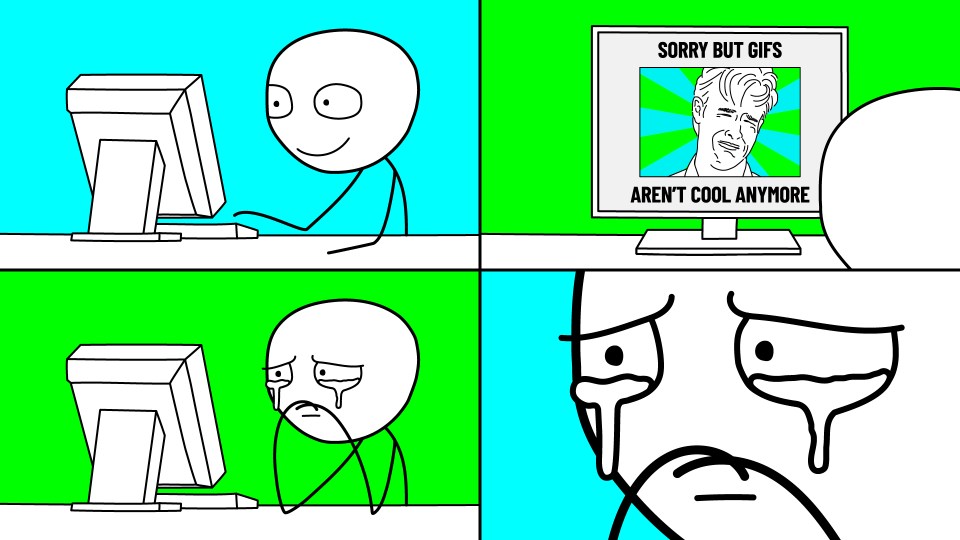
Welcome back all. Here is Digitally Literate, issue #319.
I posted the following this week:
- Digital Wildfires: Tending to social media in the ELA classroom – Wrote up and just submitted this piece with a great group of colleagues about the challenges of dealing with misinformation and disinformation in/out of the classroom…and what educators can do about it. We’ve opened the doc for commentary in order to promote open scholarship and peer review. If it is accepted for publication, we’ll include your feedback in the manuscript.
If you haven’t already, please subscribe if you would like this newsletter to show up in your inbox. Reach out and say hello at hello@digitallyliterate.net.

Racist Suburbs – Key & Peele
I love using Key & Peele content for their brilliant humorous sketches on topics. Getting to the essentials in a little more than a minute is quite an achievement.
The White Zombies skit is great as well.

Your attention didn’t collapse. It was stolen
Social media and many other facets of modern life are destroying our ability to concentrate. We need to reclaim our minds while we still can.
…we need to ask if we are now developing “an attentional pathogenic culture” – an environment in which sustained and deep focus is harder for all of us.

School Board Bans Pulitzer-Winning Graphic Novel About the Holocaust
A Tennessee school board barred schools from teaching a beloved graphic novel about the Holocaust in a unanimous vote the day before Holocaust Remembrance Day. The move to ban Art Spiegelman’s Maus, first reported by The Tennessee Holler, is the latest in a wave of book banning sweeping the country, particularly school districts in conservative areas.
This Twitter thread by Lisa Corrigan is an excellent explanation of the rationale for book bans and the focus on eroding support for the public good.
If web3 is the financialisation of the web, then ed3 is merely the (further) financialisation of education
I’ve been spending a lot of time getting back into distributed, federated technologies and Web3 is one piece of that puzzle.
Good friend Doug Belshaw provides a response to this post about Ed3 reimagining education in a decentralized world.
Belshaw indicates that what is exciting is decentralizing power and decision-making as we think about the possibilities. That…and a dash of transparency in the model…and count me in. 🙂
The Rot of Candy Crush and The Rest of Wordle
Anne Helen Petersen on the power of games to serve as fillers in our interstitial or in-between times.
I’ve found myself playing mobile games, Kingdom Two Crowns to be more specific. I’ve also started up a Minecraft Realms account again for friends and family to reconnect and play. I spend time playing instead of zombie-scrolling social media. I started playing games again when I noticed my partner playing more solitaire before bed…instead of surveying social media.
Petersen suggests that this focus on Candy Crush…and now Wordle is not bringing us together, it’s merely distracting us from other parts of our existence.
This is ultimately a story about control. Burnout, particularly when interwoven with depression, makes it difficult to actually choose to do the things that you really do want to do — socializing, getting outside, reading the book on your bedside table, not canceling an appointment, showing up for someone, fixing something, just doing something that you choose. You often find yourself on the path of least resistance, whether that means binging a television show you don’t even really like or scrolling Instagram until you get a recharged life on Candy Crush. You revenge bedtime procrastinate. You feel passive in the flow of your own damn life — and frustrated that you can’t muster the strength to redirect it.
GIFs Are For Boomers Now, Sorry
Amelia Tait suggests that the humble image file is falling out of favor with younger citizens of the web.


3 Keys to Evolving as a Lifelong Learner
Lainie Rowell shares how a process of learning, unlearning, and relearning puts educators on a path to continuous improvement.
Three strategies to foster lifelong learners:
- Reframe our mindset – embrace a mindset of contiunuous improvement.
- Be less helpful – This may irk some readers, but adults, especially educators and parents try to jump in and solve every problem. “We don’t want to rescue, we want to strategically insert ourselves.
- Ask more questions – We can now “Google” everything, but it seems like people now ask fewer questions. We need a shift to critical asset-based thinking to embrace the robust options as we move forward.


The illiterate of the 21st century will not be those who cannot read and write, but those who cannot learn, unlearn, and relearn.
Alvin Toffler


I really enjoyed this primer on rapid COVID test results from XKCD.
Say hey at hello@digitallyliterate.net or on the social network of your choice.
